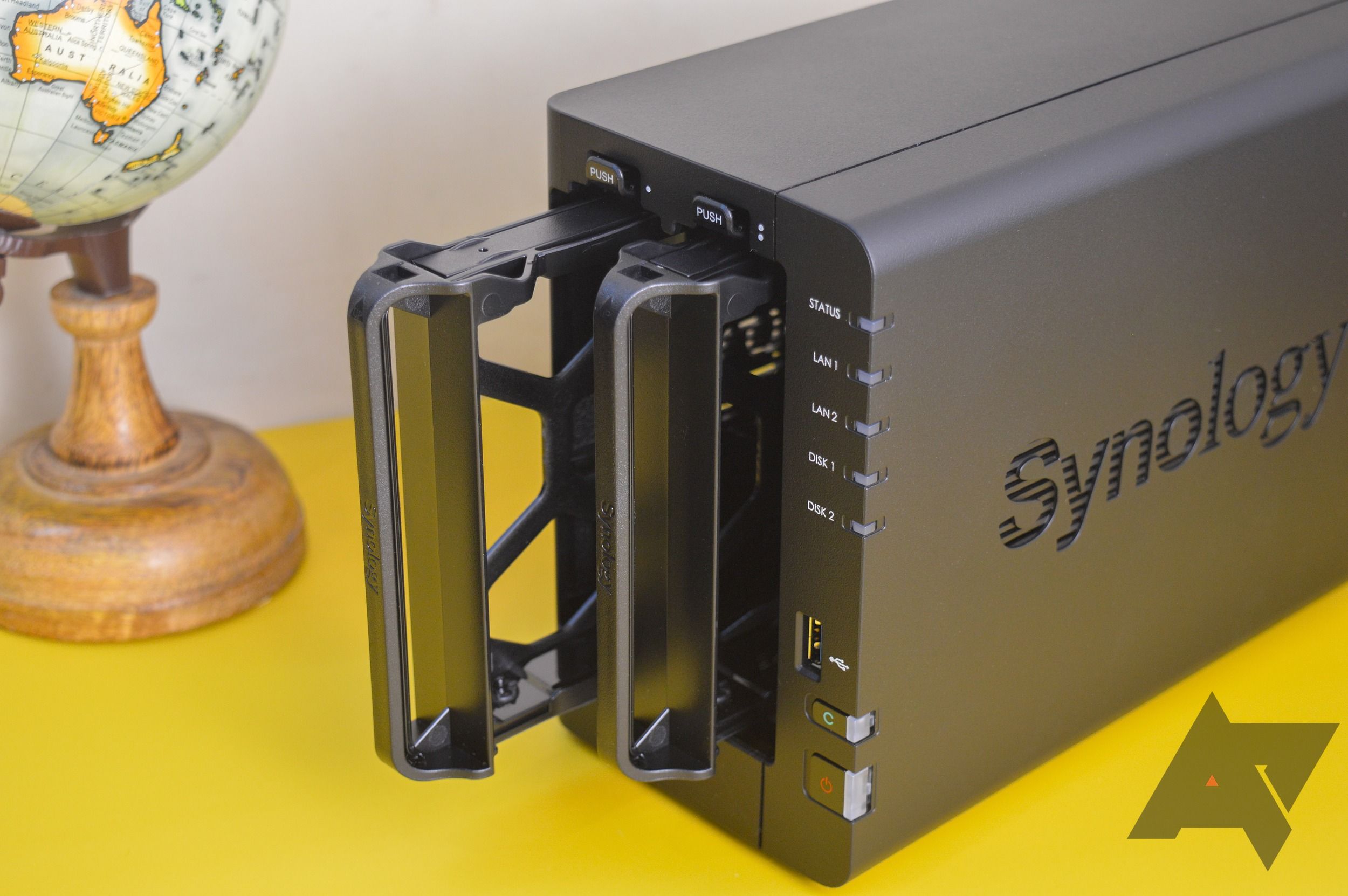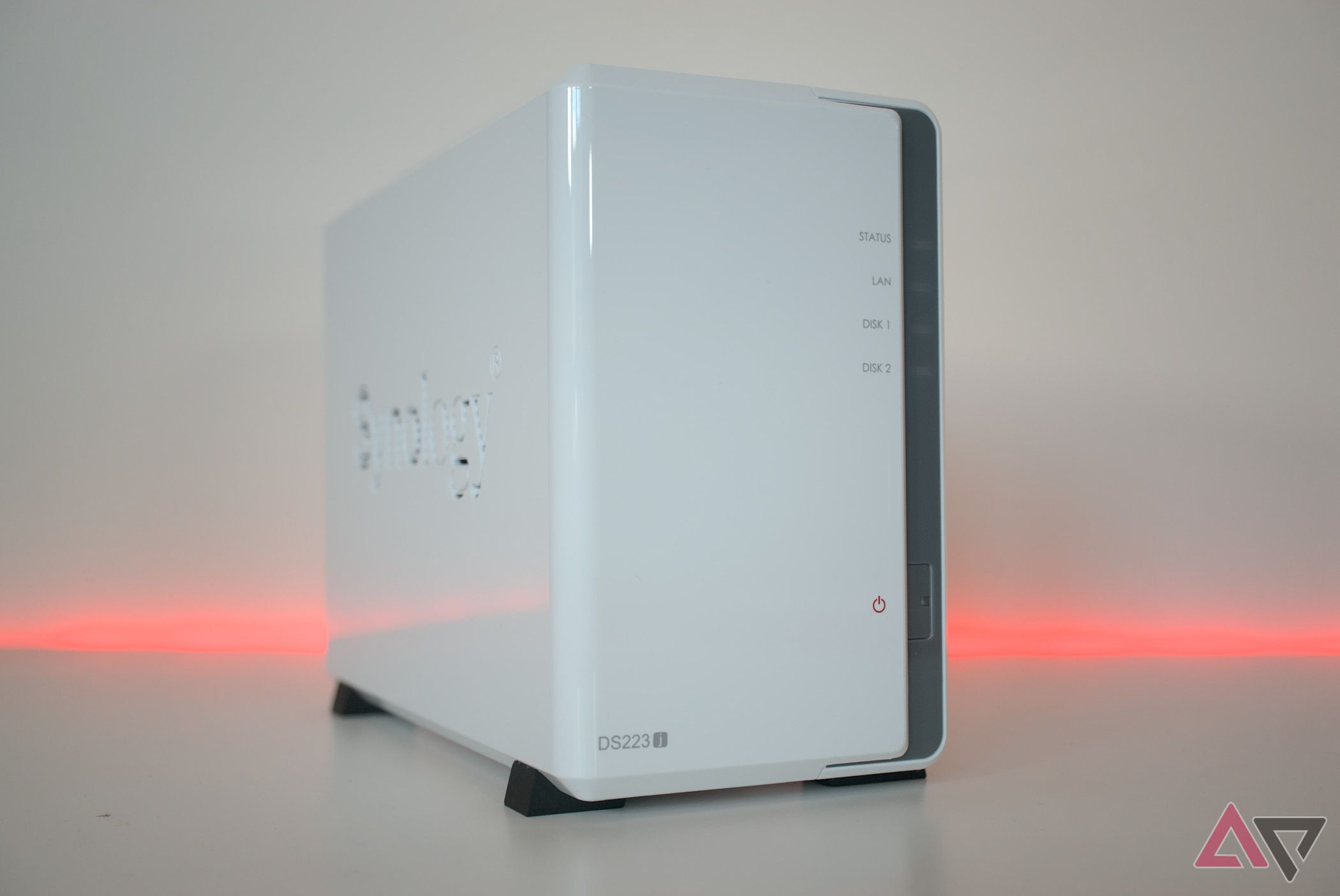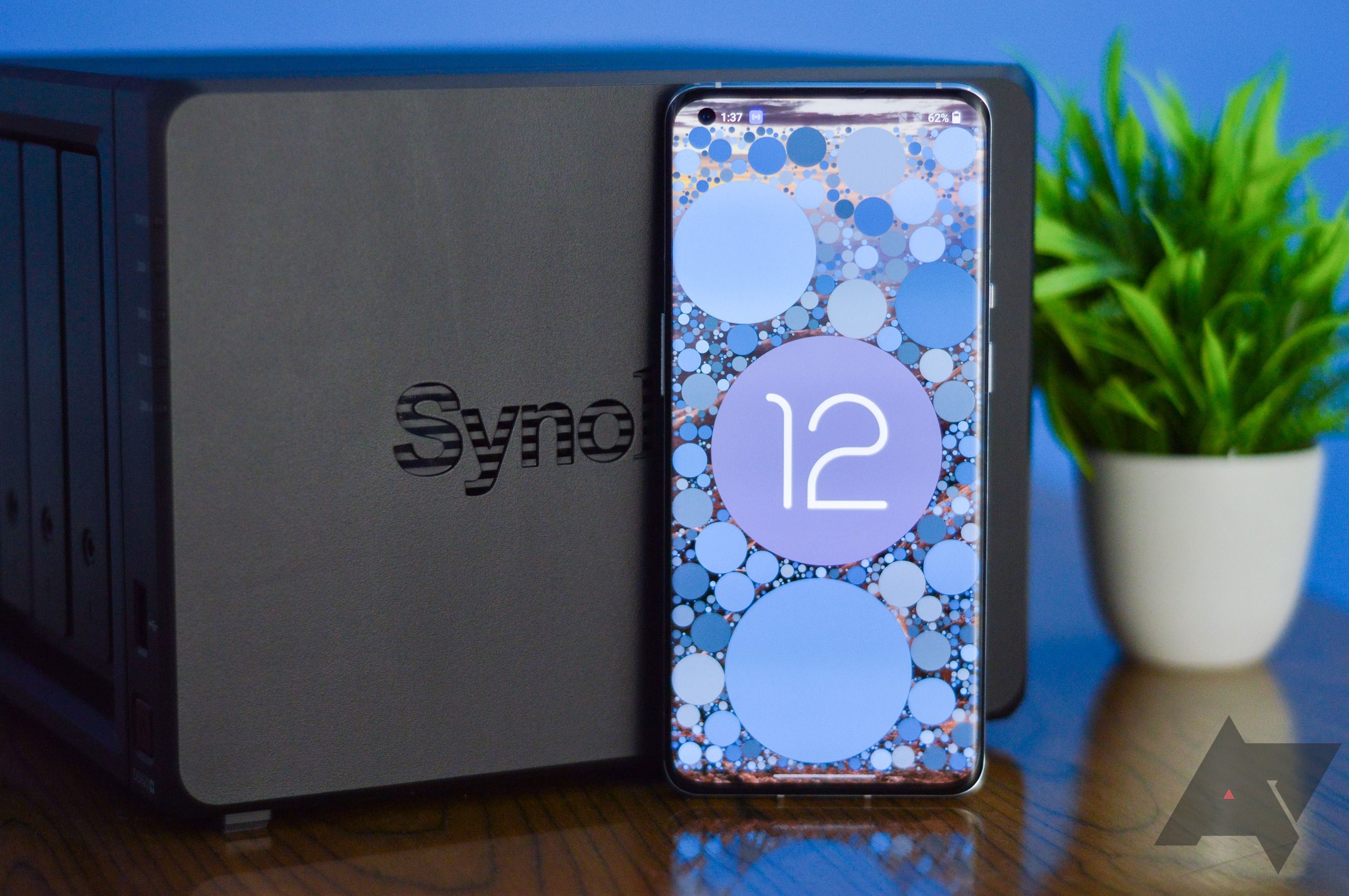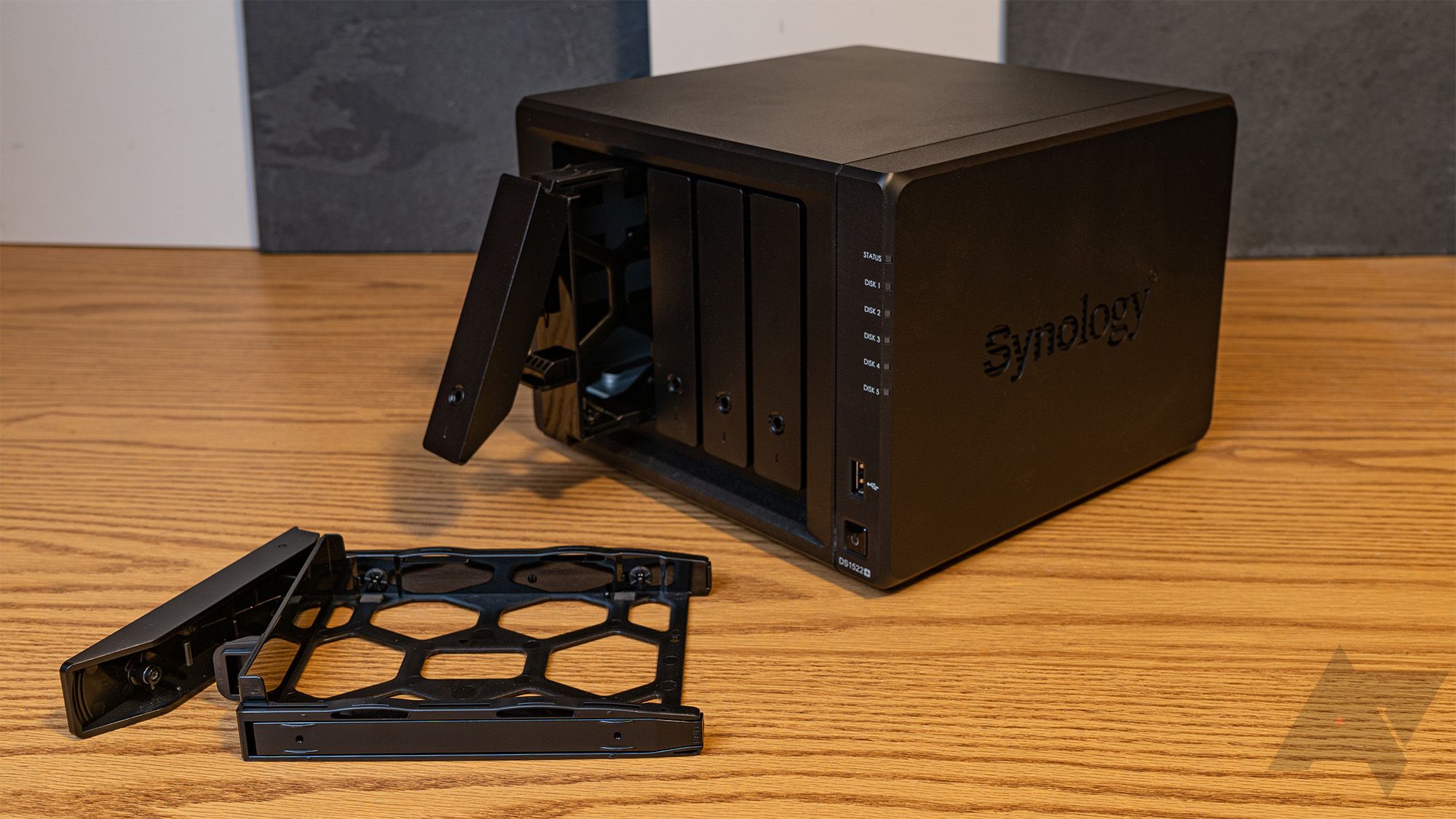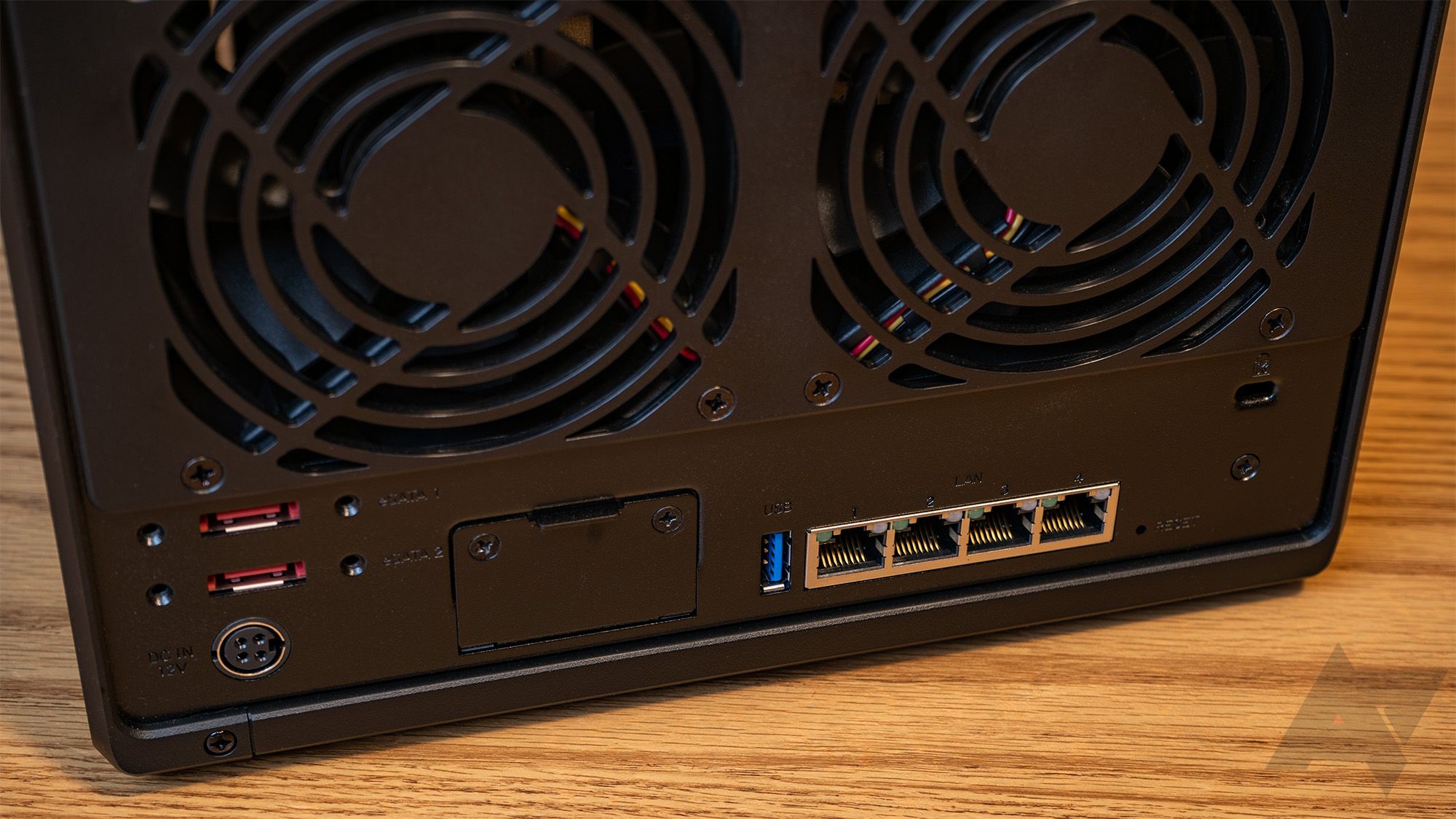NAS enclosures come in different shapes and sizes, and your needs determine which kind of NAS model fits your bill. Synology’s own NAS portfolio consists of a wide range of products designed for both consumers and businesses. While home users can easily find an inexpensive model to start with their first NAS, professionals will be equally impressed by Synology’s best NAS models that come equipped with high-end processors to handle anything you throw at them.
You will easily find something that meets your needs, be it running a business with a small team, setting up a Plex server, or getting some freelance work done at home. These are our top Synology NAS recommendations for all kinds of use cases.
Our selection of the top Synology NAS you can buy
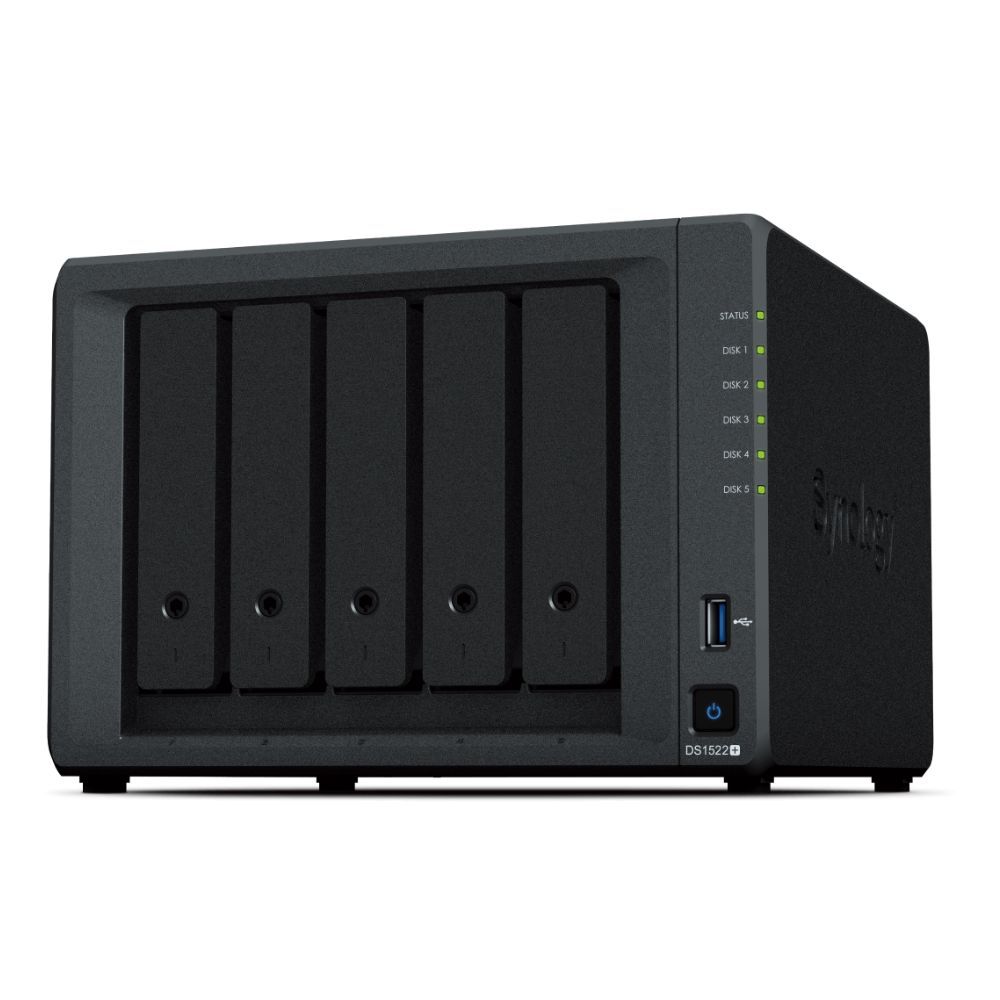
Synology DiskStation DS1522+
Perfect for both work and play
With the mid-tier Synology DS1522+, you get the best of Synology’s latest NAS lineup, including a super-fast AMD processor, the option to bump the RAM to a whopping 32GB, and an optional 10GbE network port. It can easily meet both your office and home needs without burning a hole in your pocket.
- Solid performance bump over the DS1520+
- Upgradable RAM and network port
- Ample drive bays that you can expand further
- No video transcoding on the fly
- Proprietary network adapter for 10GbE upgrade
The DiskStation DS1522+ tries to bridge the gap between the outgoing DS920+ and the uber-expensive DS1621+. You get four 1GbE LAN ports, enabling link aggregation or wired connection with a bunch of computers in your office. The best part is that the NAS comes with a (proprietary) slot where you can add a 10GbE network port as a separate purchase, keeping the cost low for those who don’t need a faster port — while still giving power users an upgrade option.
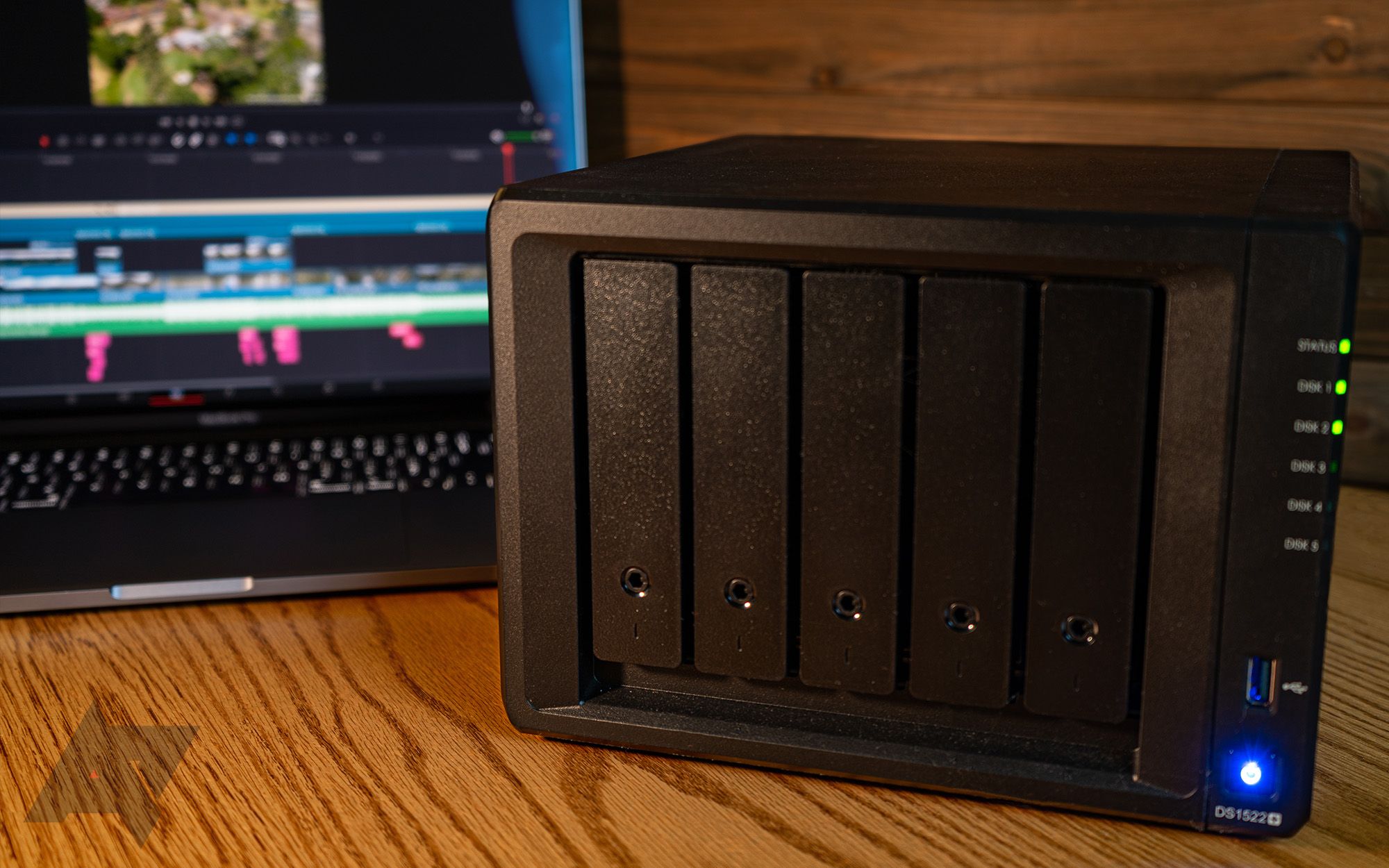
Synology DiskStation DS1522+ review: Power and performance that’s missing one thing
It’s great at just about everything but being a Plex server
Compared to its direct predecessor, the DS1522+ gets a bump to a more powerful dual-core AMD processor, which is made for taxing business environments. And with 8GB of standard RAM (upgradable to a whopping 32GB), you can run virtual machines and server apps all you want. But without a GPU, don’t expect it to transcode your videos on the fly, although streaming already transcoded media shouldn’t be an issue.
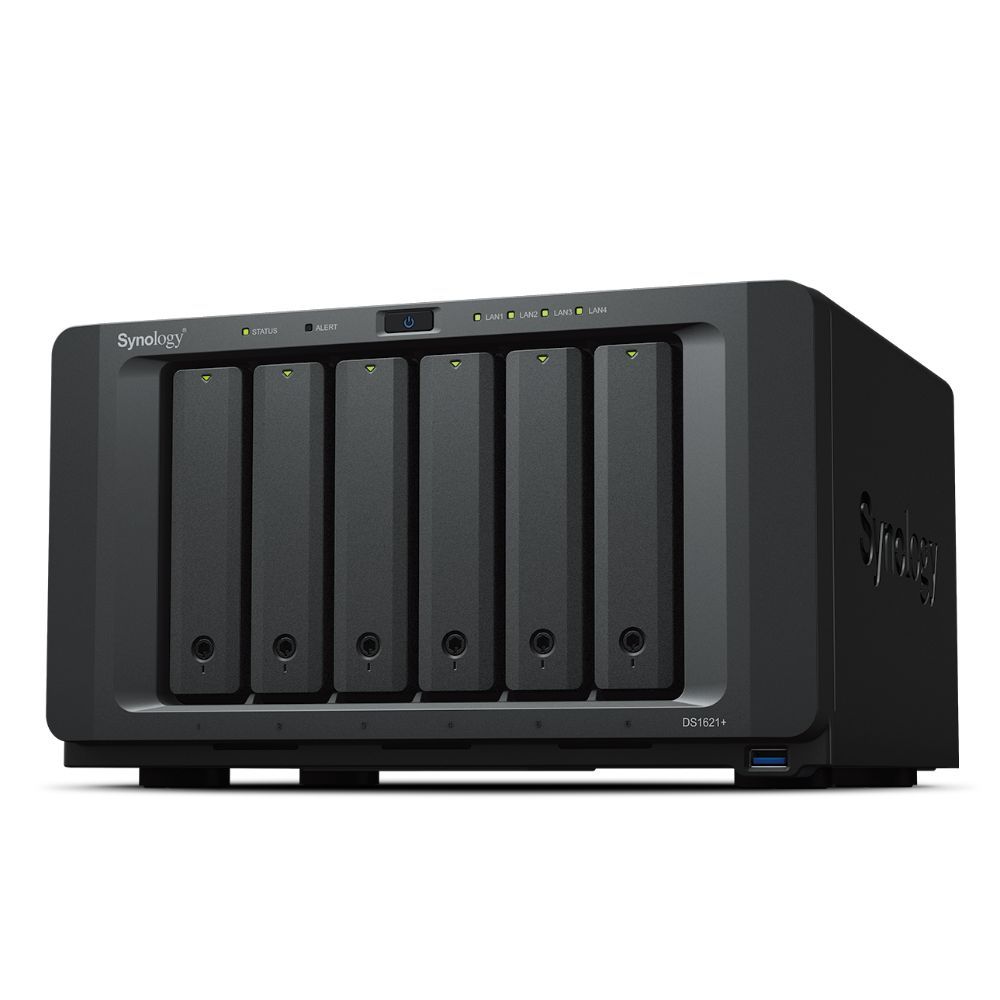
Synology DiskStation DS1621+
It doesn’t get any better than this
One of the beefiest desktop NAS you can buy from Synology, the DS1621+ is the way to go for all your heavy work needs, be it multi-cam surveillance or running virtual machines. That quad-core AMD processor can handle it all without breaking a sweat.
- Super-fast and reliable AMD Ryzen processor
- Easy upgrades with PCIe accessories
- Scalable with two expansion units
- Only 4GB of standard RAM
- Included LAN port is 1GbE
If the DS1522+ doesn’t cut it for you, you can go for the Synology DiskStation DS1621+, which is beefier in nearly all areas. Starting with the available storage space, the DS1621+ lets you add six hard drives before you need to buy an expansion unit to store more data. This is a big deal for small businesses with massive data needs, giving them some extra headroom to work with in the long run.
Speaking of businesses, the DS1621+ is designed for workplace users instead of home users, which is why an AMD processor makes more sense on this NAS enclosure. The quad-core Ryzen chip offers a far superior raw performance over the Intel Celeron range usually found on retail NAS boxes. It’s very well suited for heavy lifting, from running virtual machines and server-class apps to supporting tens of users accessing the files simultaneously.
With the DS1621+, you get a PCIe slot to add a bunch of compatible accessories to the NAS, including a 10GbE LAN port. However, the base model of this NAS enclosure starts with only 4GB of RAM, so you will have to increase the RAM from the get-go. Alternatively, you can go for the upgraded DS1621xs+ model, which gets you an even beefier Intel Xeon processor, a built-in 10GbE port, and 8GB of base RAM.
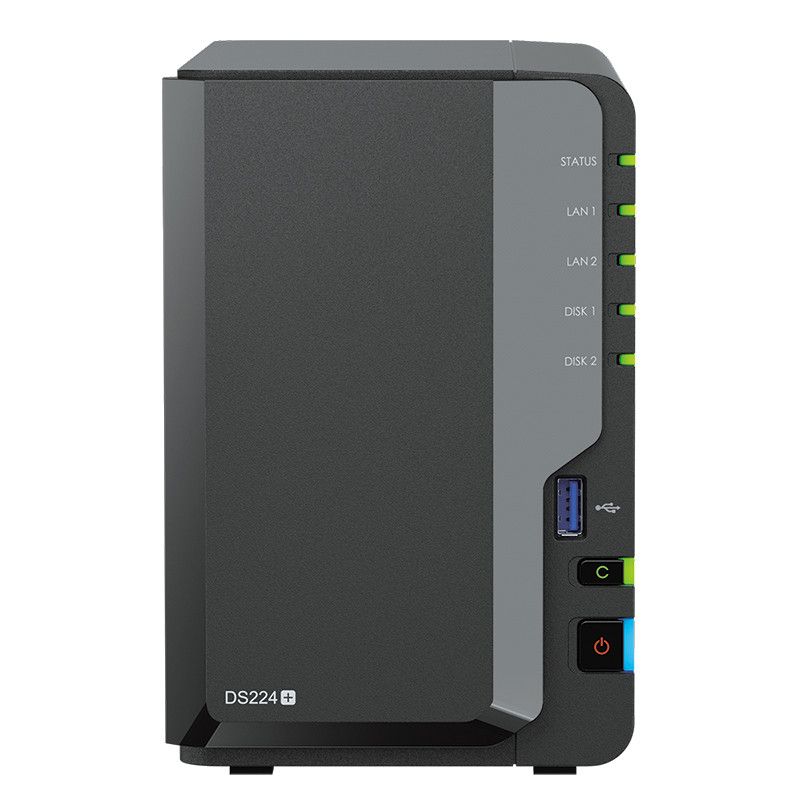
Synology DiskStation DS224+
The perfect NAS for home users
The upgraded DiskStation DS224+ now comes with a quad-core processor borrowed from one of Synology’s most popular consumer enclosures. The performance upgrade allows it to be an even more capable desktop NAS device for home users who want to stream 4K movies and also get a bit of work done.
- Quad-core Intel CPU
- Excellent software
- Affordable price
- Not too different from the DS220+
The Synology DiskStation DS224+ looks very similar to the outgoing DS220+, but that doesn’t mean there is nothing new on the inside. The new model comes with a crucial upgrade in the form of its processor. The DS224+ uses a quad-core Intel Celeron processor that Synology previously used on its DS920+ — perhaps Synology’s most sought-after NAS model of all time. While this processor may not be the newest one around, it brings some notable improvements to this budget NAS over its predecessor.
We had no issues transcoding and streaming 4K videos on the DS224+ with Plex, which isn’t surprising since the DS920+ was often hailed for its media capabilities. In fact, we were able to run multiple streams of 4K videos simultaneously, and the DS224+ didn’t break a sweat. Our testing also confirmed that the transfer speeds can hit 210MB/s easily, which is more than enough for most home users and even some office tasks.
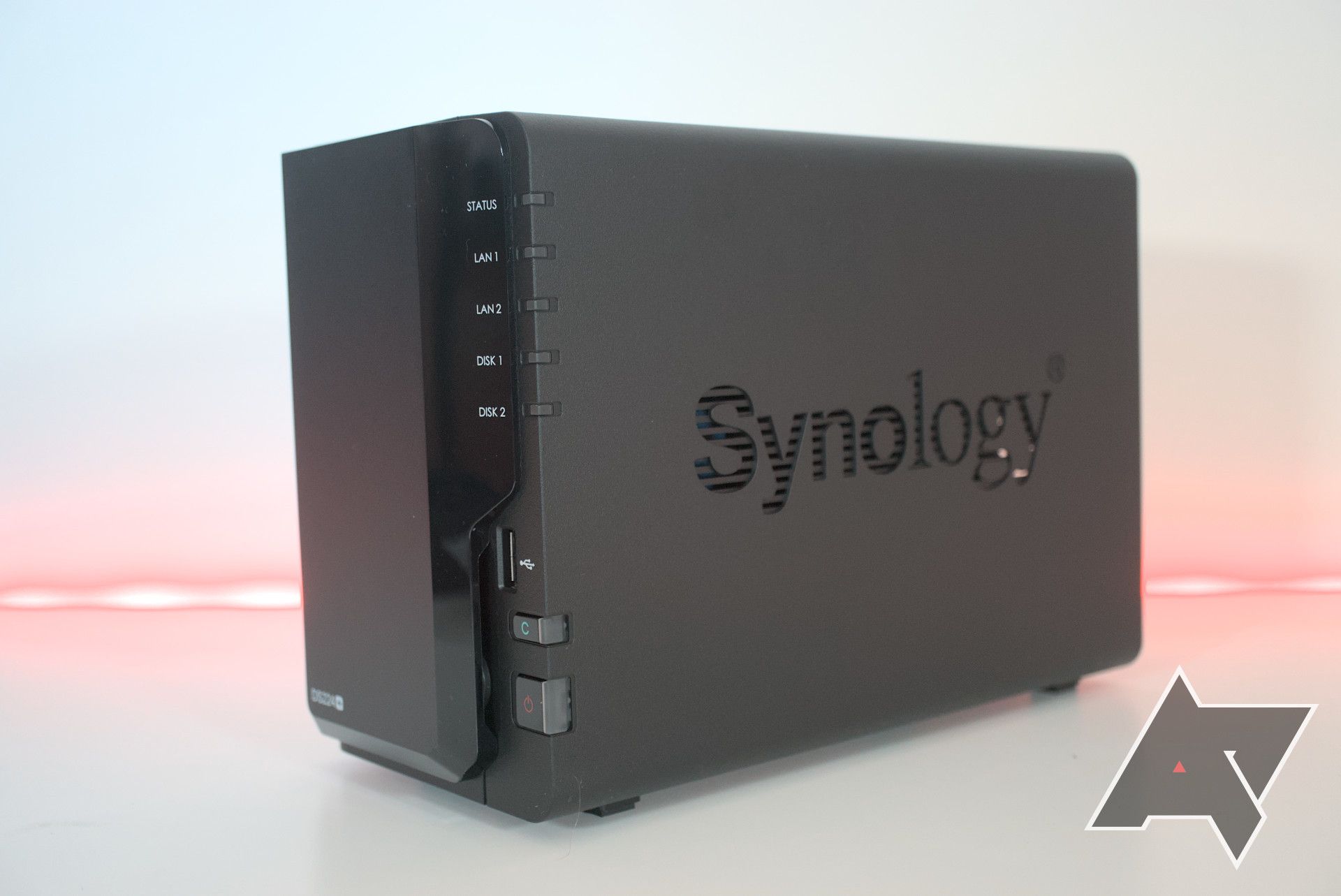
Synology DiskStation DS224+ review: Out with the old, in with the old
An important launch for Synology to retain its NAS crown.
Its 2GB of standard RAM could be an issue if you do a lot of multitasking, but most users should be able to get away with the base package without having to worry about the RAM. However, if you need it, you have the option to expand the RAM to 6GB by slotting in a 4GB stick.
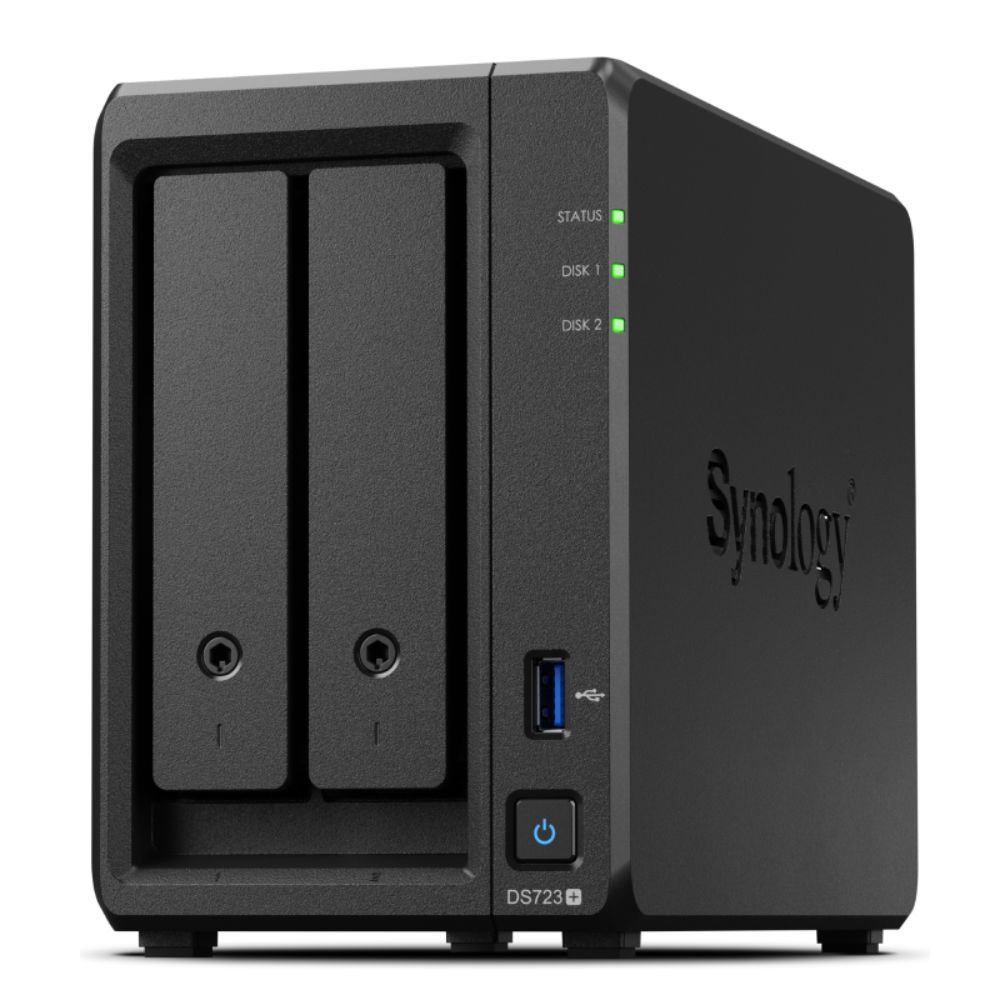
Synology DiskStation DS723+
Get all the power in a compact body
The Synology DS723+ comes with the internals of its more expensive siblings but without a bulky build. So, you can easily keep it on your desk and hook it directly to your computer with a LAN cable. Easy peasy.
- Snappy performance with Ryzen processor
- Compact, two-bay system for home office use
- Supports expansion unit
- Only 2GB of standard RAM
- No integrated GPU for video transcoding
For individual professionals and freelancers working from home, a NAS enclosure’s horsepower tends to be more crucial than its storage capacity. If you fall in that category, the new DS723+ is the right Synology NAS for you. This new model gets you the brains of the pricier DS1522+ but with a compact design of the DS220+ — all at an affordable price. In addition, the two-bay DS723+ comes powered by the dual-core Ryzen 1600, making it one of the best-performing NAS units in its price bracket.
However, the switch to a Ryzen chip may not go down well with those looking to run a Plex server on their DS723+. Due to no integrated GPU, you must ensure that your media files are in a format your client devices support so that the CPU isn’t overburdened with media transcoding while streaming content.
Synology has included eSATA and PCIe slots for attaching accessories or Synology’s expansion unit for a total of seven drive bays. You can further boost the NAS’s performance by adding two NVMe drives dedicated to caching, but its 2GB of RAM remains a sore point. You can expand the RAM up to 32GB, but you’ll have to spend extra on it.
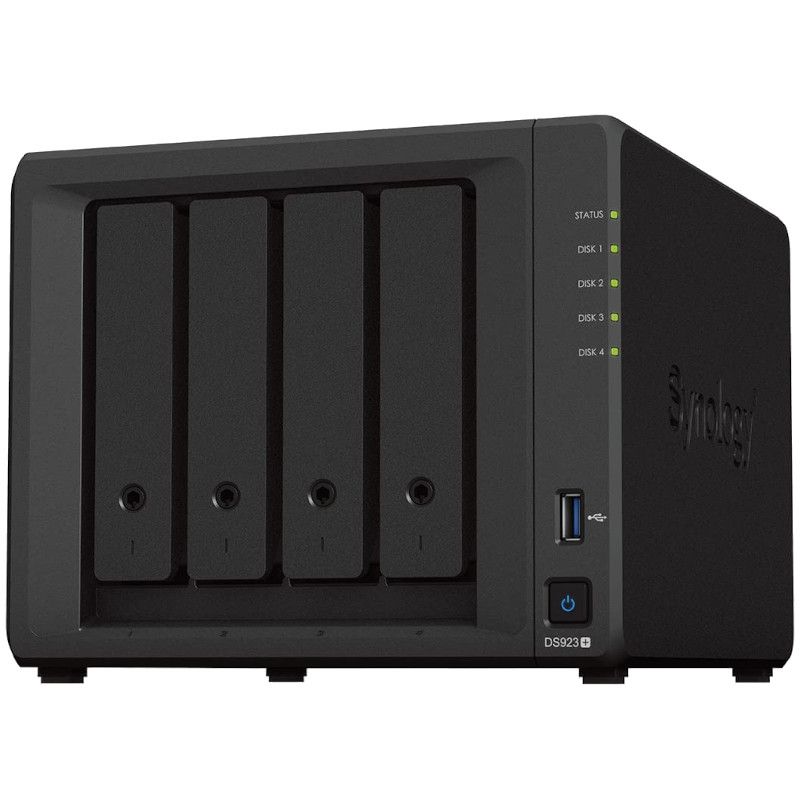
Synology DiskStation DS923+
The mid-tier champ for home offices
Replacing the uber-popular DS920+, the Synology DS923+ comes with a familiar and compact design and a more powerful processor to easily handle all your office needs. It is a great fit for your home office as it gets you the best of the DS1522+ but at a slightly lower price.
- NVMe drives can be used as storage
- Excellent performance with the AMD chip
- Supports up to 32GB of RAM
- Lacks integrated GPU
- Included network ports are still 1GbE
The DiskStation DS923+ is the follow-up to arguably the most popular NAS model in Synology’s lineup: the DS920+. With some notable changes on the inside, Synology has put this new mid-tier model right up against its premium options. The DS923+ comes with the same Ryzen R1600 processor as many of its pricier siblings. While the AMD chip is indeed more powerful, it now lets you add up to 32GB of RAM as well, making the DS923+ a perfect NAS for small businesses and home offices.
Much like the DS1522+, you can use the included PCIe slot on the DS923+ to add a 10GbE network card to make full use of the NAS’s capabilities. With the right setup, the company claims the NAS can read and write data at over 500MB/s. A big change that Synology introduced with the DS923+ is that you can now use your NVMe drives as storage instead of just caching, which can help speed up your data transfers significantly. These changes alone make it a worthy upgrade over the outgoing DS920+.
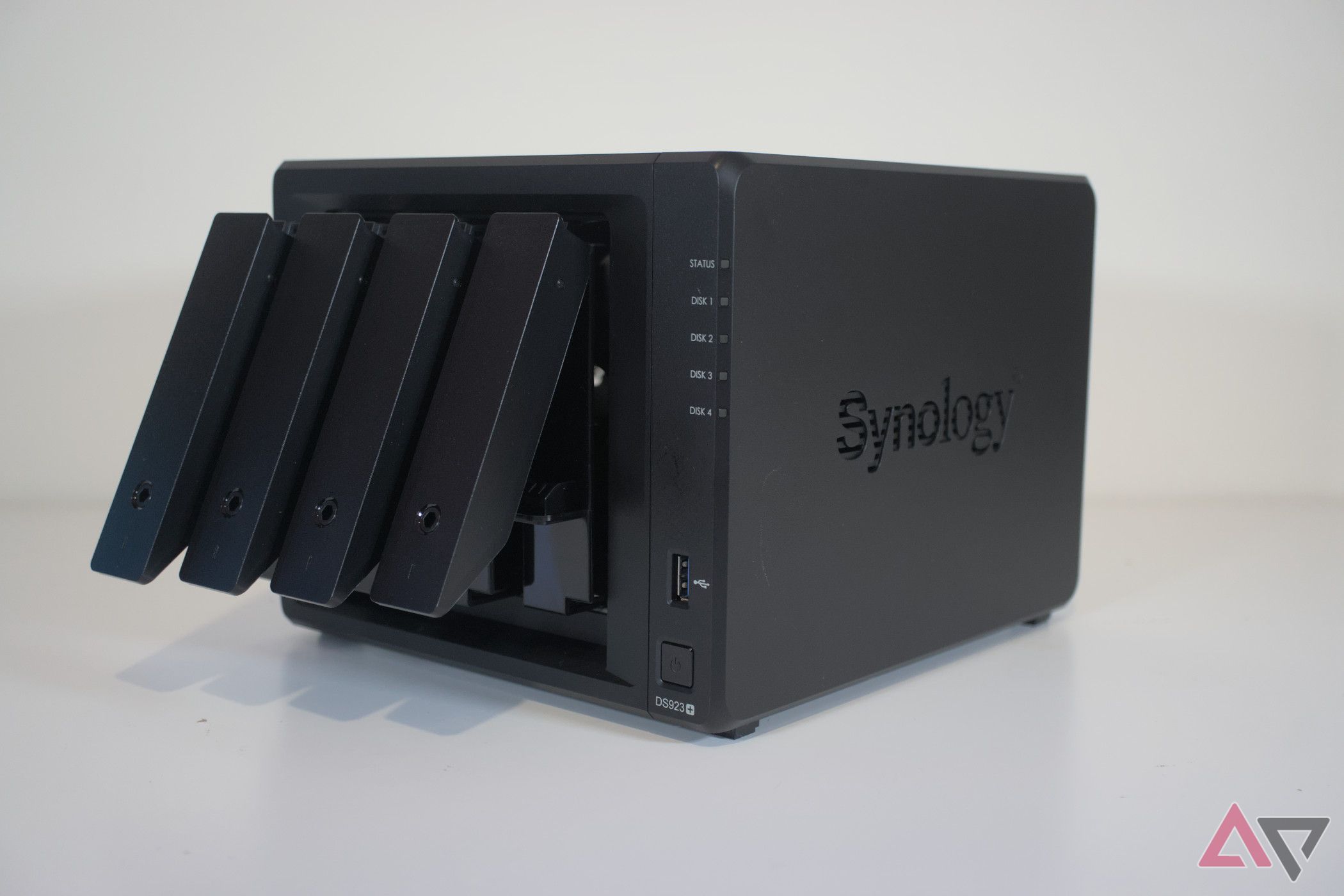
Synology DiskStation DS923+ review: An AMD-powered NAS with a few minor flaws
Taking Synology’s 2023 four-bay premium home NAS for a spin.
The choices that Synology made with the DS923+ have some downsides, too. For starters, the NAS lacks an integrated GPU, which isn’t ideal if you’re looking for the best NAS for running a Plex server. And though the two included LAN ports support link aggregation, it’s a shame that they are still 1GbE each.
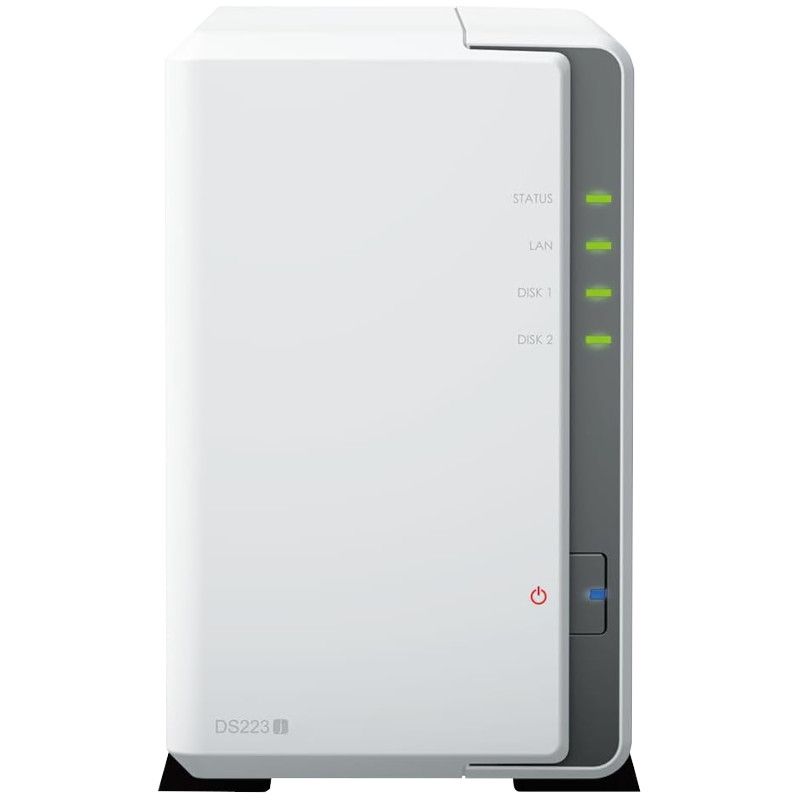
Synology DiskStation DS223j
Excellent budget starter pack
The DiskStation DS223j is a two-bay budget NAS that gets you ample storage space for all your home and office files without many fancy (and expensive) features. Synology has given it a new Realtek processor for better performance than its predecessor. It’s a bargain compared to the amount of cash it will help you save in the long run over a cloud storage subscription.
- Two-bay NAS for cheap
- Made for data backup and storage
- Access to Synology?s excellent software
- Not the most powerful NAS around
Unlike the Plus-branded Synology NAS models, the J series isn’t meant for heavy tasks like media transcoding. For regular file storage and sharing at your office, the DiskStation DS223j will do a perfect job. It is also an inexpensive way of maintaining an offsite backup of your main server to enhance the safety of your data. And its two HDD bays can hold tens of TBs of data, which is enough for homes and most freelancers.
While you can get similar budget NAS enclosures from other brands for less, not many can match the polish Synology’s operating system comes with. You get the latest and refreshed DSM 7 out of the box, and the accompanying first-party apps work like a charm. The CPU and RAM combination the DS223j comes with is well suited to run DSM without any issue, but don’t expect a lot from this hardware.
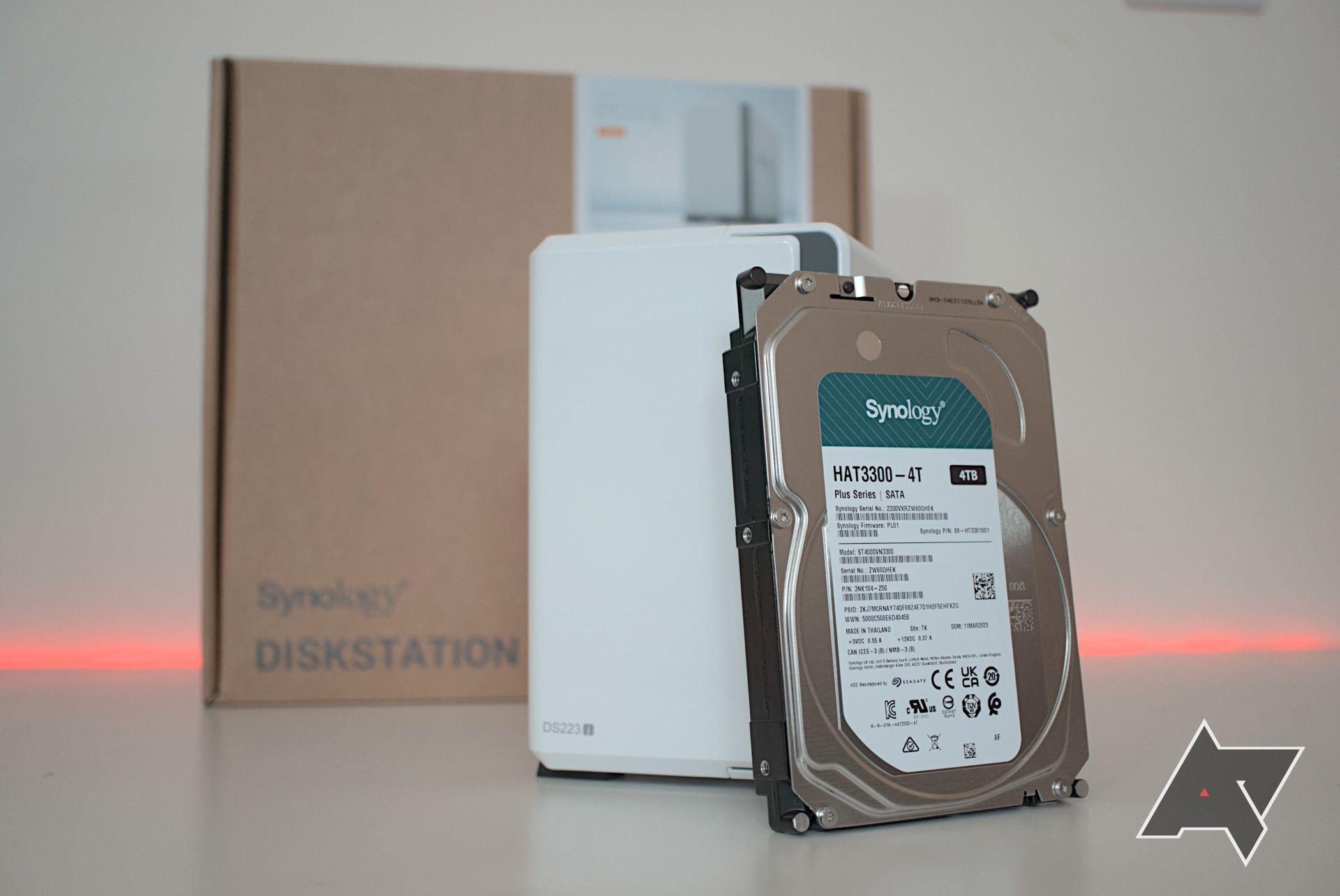
Synology DiskStation DS223j review: Another great budget-friendly NAS for storage
Taking Synology’s new super-affordable two-bay NAS for a spin
The DS223j sure has a few downsides, like it still uses a 1GbE network port and there is no expansion slot, but these choices have helped make the NAS affordable. You can put together a whole package with a pair of hard drives for under $300, which is quite reasonable for home users on a budget.
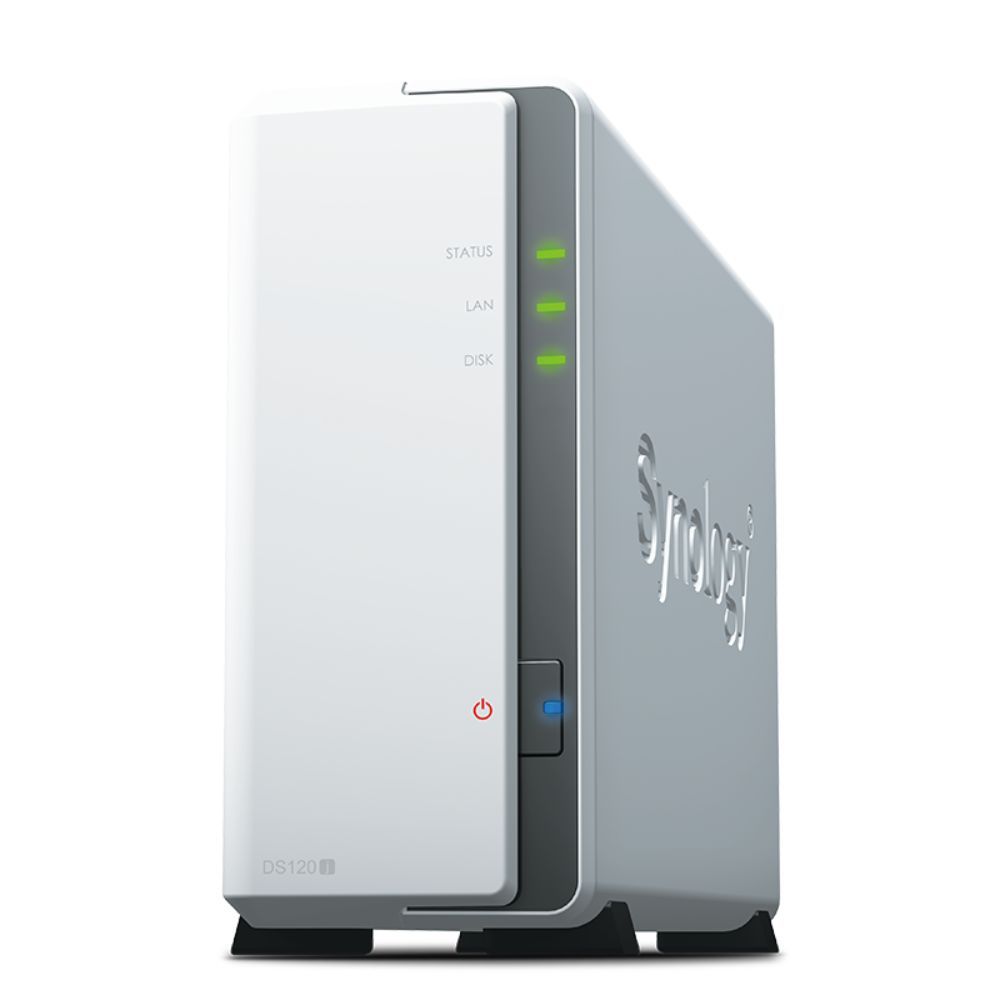
Synology DiskStation DS120j
All the smarts in an entry-level package
The Synology DS120j can be the right replacement for your good-old USB hard drives to back up your family photos seamlessly. Once you set it up, the NAS will automatically take care of your photos over Wi-Fi without you having to take a backup manually every few days. And the DS120j doesn’t even cost a lot to get started.
- Excellent value for budget shoppers
- Comes with the latest DSM 7 OS
- Compact and power-efficient
- Single drive means no data redundancy
- High-res video streaming may not be the smoothest
Getting your first NAS enclosure shouldn’t mean spending several hundred dollars upfront. You can pair a single-drive DiskStation DS120j with a 4TB HDD (supports up to 14TB) for under $200. And for that price, you get the same excellent Synology software as the more premium NAS units. The DS120j is perfect as a Google Photos alternative to store your family photos and videos, or you can use it as a secondary backup system for your primary NAS.
The DS120j is a power-efficient, compact machine you can easily tuck away on a shelf. Even on your desk, it won’t take up a lot of space. Its processor and RAM configurations are enough for data storage and light streaming needs but don’t expect it to play 1080p or higher-res videos without a hiccup. Just make sure to pick up a 7200 RPM drive to make the most of the NAS’s transfer speeds, and you will have an unbeatable package for its price.
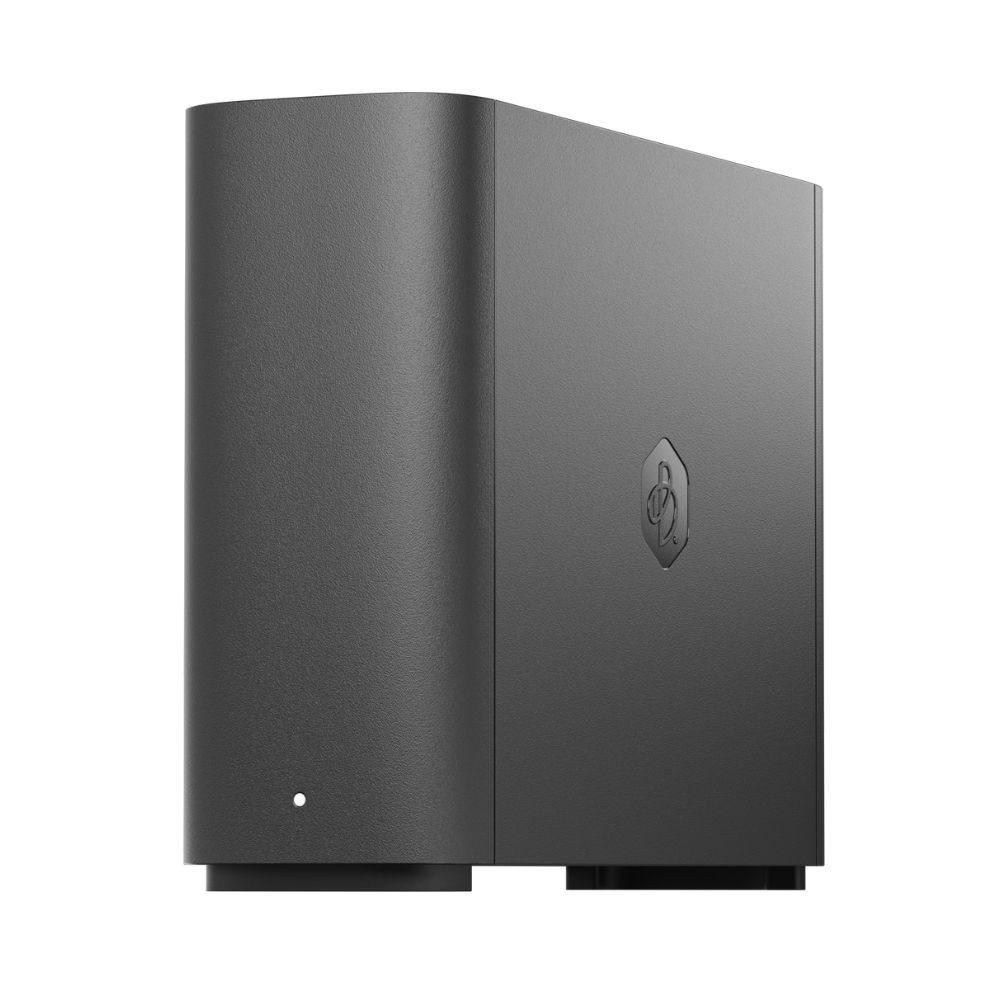
Synology BeeStation
Barebones NAS for file sharing
The Synology BeeStation avoids the complexity of setting up a NAS by providing a turnkey solution with 4TB of storage pre-installed. The downside of its out-of-the box readiness is that you can’t upgrade the storage or add apps to this NAS.
- Simple to deploy
- 4TB of storage in the price
- Synology quality
- No memory or storage upgrades
- No video streaming app
The focus of the Synology BeeStation is to offer a simple cloud and file storage solution that doesn’t require a master’s degree in computer science to deploy.
To that end, it doesn’t use the Synology DSM operating system but a simpler BSM OS that comes with just two pre-installed applications. One of these web-based tools is for general file work, and the other is for managing a photo library. Beyond BeeFiles and BeePhotos, the functionality of the BeeStation is quite limited. It offers the ability to sync cloud storage to the internal space, but only for Dropbox, Google Drive, and OneDrive. All of Synology’s DiskStation machines can do this, but they offer many more Cloud services, like Amazon’s S3.
The missing feature that makes the BeeStation mildly less useful is that it doesn’t support DLNA for video sharing, and you can’t install Plex on BSM.
The internal platform has a similar specification to the Synology DiskStation DS233j, with the same SoC and memory in the BeeStation. However, what you can’t do with the BeeStation is swap the 4TB internal drive for something bigger, or even replace it with another 4TB if it fails.
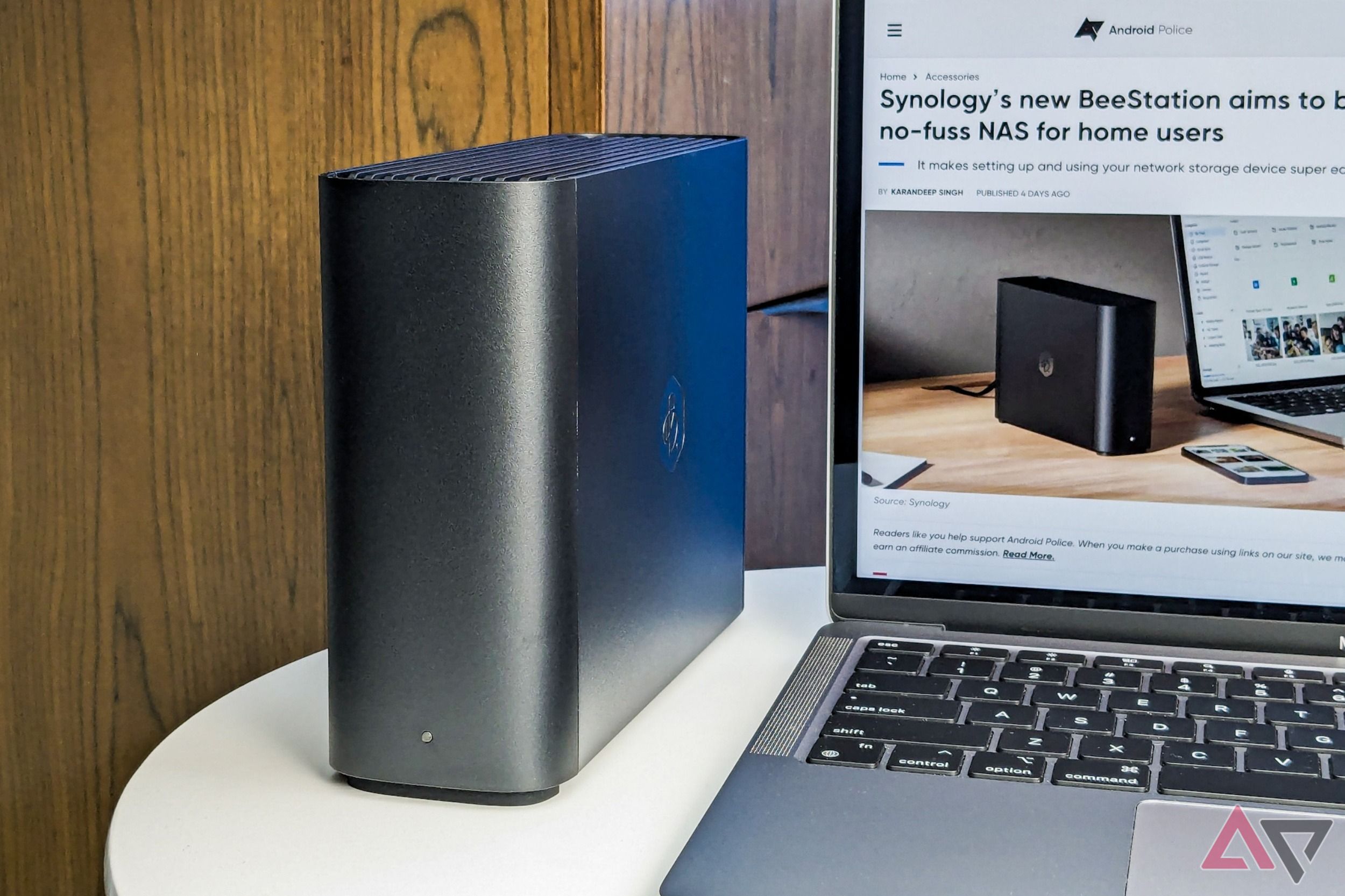
Synology BeeStation review: A great first NAS
Looking for a straightforward NAS for your home? This is it!
Overall, the BeeStation is the new Synology first rung on the NAS ladder and might replace the single-drive NAS models in the future. For those unfamiliar with network storage, it provides an easy-to-follow start point that shouldn’t overwhelm the majority of purchasers. The limitation is that once owners get familiar with this device, they don’t have an upgrade path to explore.
Which Synology NAS is best for home use?
Most home users will be happy with the all-new Synology DiskStation DS224+, which happens to be an upgraded model of our previous favorite NAS enclosure for those on a budget. Its new internals make it a powerful machine that is capable of doing a lot more than its predecessor. It is perfect for streaming 4K movies on multiple devices, and handling transcoding on the fly is a breeze for its new chip. If you decide to bump up its RAM to 6GB, you can even use it for your freelance work from home, which can involve a bit of multitasking on the NAS.
In case all this sounds overkill for your basic home use that involves nothing more than saving your family photos and videos in a safe place, backing up your computers, and safekeeping your old files that you’re too lazy to get rid of, you can easily get away with the new DS223j. It is a super cheap dual-bay NAS that gets you plenty of storage space without going for a costlier model if you don’t need the extra horsepower. And if you’re on an even tighter budget, the entry-level single-bay DS120j should do the job without burning a hole in your pocket, or even the BeeStation if you just want a centralized file store.
The perfect middle ground for mixed-use
As your usage grows, like in the hybrid work environment of today, the demand for raw hardware performance will also increase. That’s where our upgraded picks — the DS1522+ and the DS923+ — come in. With both these models, you get a much more powerful processor and ample RAM to take care of all your advanced work applications. Handling multiple streams of security cameras or supporting a small team is a breeze for either Synology enclosure. You can even set up Synology Drive as your native Google Drive alternative for your entire team, which is one of the best parts of owning a Synology NAS.
Where the DS1522+ scores more than the DS923+ is its additional drive bay, 8GB of base memory, four LAN ports, and two eSATA ports for adding two drive expansion units. And you get all those extra benefits by spending just $100 more over the DS923+. But if you don’t care about all those extras, which could be the case if you are a freelancer or work from a home office, you can easily get by with the DS923+, considering how similar both models are otherwise, while saving some cash, which you can invest in NAS-specific hard drives.
The DS1522+ and the DS923+ use the same AMD processor that lacks an integrated GPU, making both of them a little less ideal for transcoding videos as it would stress out the CPU pretty quickly, depending on the file size and type. But if your media is already transcoded in a format that your client devices (such as your TV set) already support, then using either model or even the two-bay DS723+ won’t be a problem.
Synology NAS for the pros
There is a subset of users that doesn’t fall under any category discussed above and needs a powerful server for their large team or run more resource-intensive apps like a virtual machine, be it Windows or any Linux distro. And for something like that, a Celeron or a dual-core AMD chip doesn’t cut it.
What your business needs is the Synology DiskStation DS1621+ — the most powerful desktop NAS enclosure on this list. Its highlights are the uber-capable quad-core AMD processor and the ability to rock a whopping 32GB of RAM, making it suitable for advanced workloads. You can easily run Windows applications and maybe even play a game or two with RetroArch when not working. Plus, you will appreciate having ample performance headroom in the long run when your team size grows, or your NAS’s workload increases.
Synology also makes even bigger and beefier systems, like the DiskStation DS36xx series, which comes with a class-leading Intel Xeon processor and up to 12 bays for storing and efficiently processing hundreds of TBs of data. But you must also be prepared to pay a premium price for such top-of-the-line models, which can run into thousands of dollars for the complete package.
Prepare for the future in any case
While adding more hard drives in available slots or using expansion units is easy, upgrading your Synology NAS’s performance capability won’t be easy — or cheap. Getting a NAS is a long-term investment, so it’s better to stretch your budget slightly to get an upper-tier enclosure from the get-go, especially if you’re buying one for your work needs.
And while you’re budgeting, don’t forget to account for the NAS-specific hard drives that can significantly drive up your initial cost. You can save a bit on that investment by starting with a couple of HDDs and adding more as your needs and team size grow.

Synology DiskStation DS1522+
Perfect for both work and play
With the mid-tier Synology DS1522+, you get the best of Synology’s latest NAS lineup, including a super-fast AMD processor, the option to bump the RAM to a whopping 32GB, and an optional 10GbE network port. It can easily meet both your office and home needs without burning a hole in your pocket.




